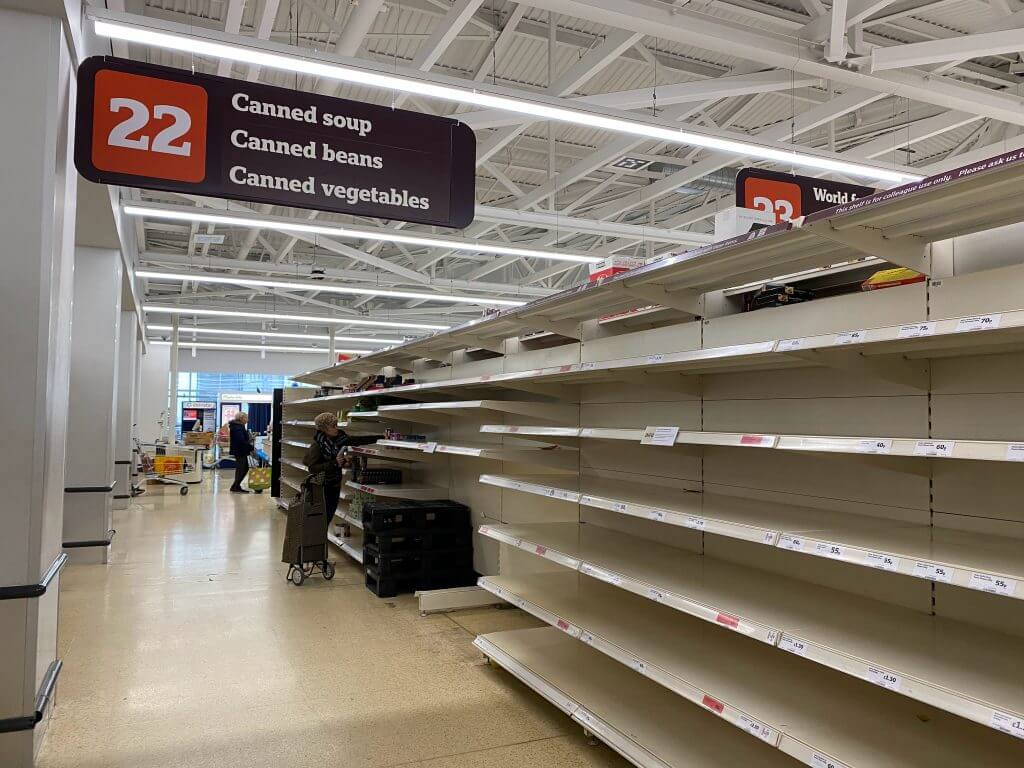By Nicoletta Batini, James Lomax, and Divya Mehra
Food systems are essential to economic activity because they provide the energy that we need to live and work. However, macroeconomists have long ignored them in the belief that the global agri-food industry, now highly mechanized, subsidized and concentrated, offers all we could wish for when it comes to food.
2020 will be a year of reckoning for the world’s food systems. In just months, COVID-19 shut down half the globe. Images of panic buying, empty grocery shelves and miles-long queues at food banks have suddenly reminded us how important food systems are in our lives and how imbalanced they have become.
Pandemic-induced runs on food, however, do not merely reflect human behavior during emergencies. They are evidence that the global food supply chain—highly centralized and operating on a just-in-time supply basis—is prone to falter in the face of shocks. In many countries, for example, it became impossible to harvest or package food as workers were blocked at borders or fell sick. Elsewhere, stocks piled up and avalanches of food went to waste because restaurants and bars were closed. In developing countries, the United Nation’s Food and Agriculture Organization and the World Food Program expect that a “hunger pandemic” and a doubling of people starving may soon eclipse the coronavirus, unless action is taken.
Unhealthy state
Cracks in the global food system’s facade have long been apparent. According to the latest State of Food Security and Nutrition in the World, already in 2018 about 820 million people went to bed hungry and a third of all people lacked essential nutrients. At the same time, 600 million people were categorized as obese and 2 billion overweight, because of imbalanced diets, which were also associated with obesity, diabetes, cancer, and cardiovascular diseases that compromise immune health. Today, immuno-depressed and malnourished people worldwide are suffering disproportionally the lethal consequences of COVID-19. In all these cases, the human toll comes with huge economic costs, including lost incomes and soaring public debt.
The limitations of the food system go beyond failing to feed the world well. Food produced through the overuse of chemicals, in monoculture cropping systems, and intensive animal farming on land and at sea degrades natural resources faster than they can reproduce and causes a quarter of all man-made greenhouse gas emissions, with livestock responsible for about a half of that. According to scientific research, including by the Food and Agriculture Organization, industrial animal farming operations that rear large numbers of animals in confined spaces breed lethal viruses, like the 2009 swine flu, and spread antibiotic-resistant “superbugs” because of the overuse of antibiotics to promote their growth and prevent infections.
At the same time, our uncontrolled disturbance of pristine habitats to farm and hunt has allowed deadly pathogens like SARS, HIV, Ebola, to jump species, infecting ours.
Read the rest here: https://blogs.imf.org/2020/07/14/why-sustainable-food-systems-are-needed-in-a-post-covid-world/
